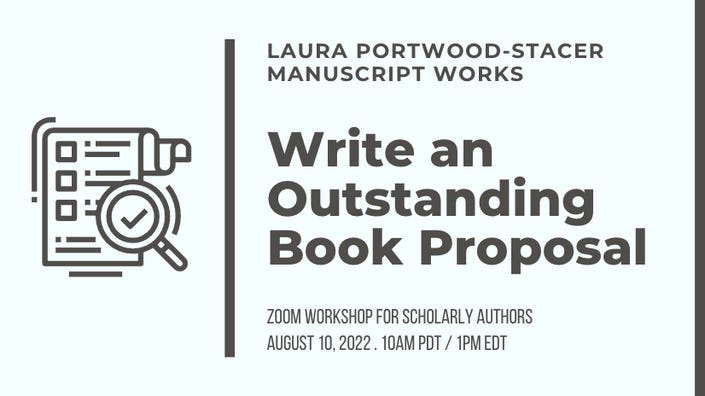It Takes A Village: Writing Resources I Love
Photo by Radu Marcusu on Unsplash
One of the things that I realized about midway through my graduate program is not only did I need to learn the literature and conventions of my field, but I needed to learn HOW to manage my life as a scholar in a more practical sense.
We are much better in the academy at explicitly teaching major theories and works that form the basis of our knowledge. We are not as good at formally teaching pragmatic skills like writing as project management, breaking through writing barriers, what a journal article should look like, how to write a book, overcoming imposter syndrome or perfectionism, time management, and the list goes on.
Once I realized that I needed a whole host of skills to manage my writing, my time, and my career, I began devouring professional development resources. I think that many of us feel so stretched thin in pursuing a PhD or surviving the tenure track hustle that we don’t feel we have time for professional development. I’m here to tell you that a little investment now, saves much time and stress later.
Devoting time to learning things like project and time management, overcoming writing resistance, and the logistics of publishing have been essential to my career wins. Importantly, these wins are not individually achieved. I had a village of mentors and writing resources that helped me get there.
Today I’m here to share three key resources that have been instrumental tools of my professional development as a writer.
The National Center for Faculty Development and Diversity (NCFDD)
The NCFDD is an organization that provides professional development for faculty, graduate students, and post docs. They offer on campus workshops, live and on-demand webinars, and a virtual faculty success program. These webinars include topics like developing a strategic plan, overcoming imposter syndrome, daily writing (I have thoughts on this one), dealing with writing resistance, work life balance, and cultivating mentors. They also offer a lot of great resources for folks who come from groups traditionally marginalized in the academy. NCFDD fundamentally works to make academia more transparent for all, and I’m here for it. If your university is an institutional member, then you can access many great resources for free! (Note: these are primarily in the US with a few in Canada.)
NCFDD’s flagship service, the Faculty Success Program (FSP), is a 12-week virtual course consisting of webinars, access to a daily writing accountability platform, and a small cohort of peers and a coach who you meet with once a week. FSP will cost you a cool $5k to participate, so it’s a hefty investment. My university sponsored my participation in FSP a few years ago and I found the program quite helpful. I’m not sure I would invest that much of my own money in the program because they offer the same content through the on-demand recorded webinars (minus the accountability and structure of the cohort and coach support). They provide resources for getting institutions to pay for FSP, so that might be worth looking into depending on where you sit in the academy.
With institutional access, you can watch the core skills webinars that NCFDD also teaches in FSP without doing the full program. When I was a graduate student and once when I was a faculty member, I organized graduate student writing groups around NCFDD’s webinars to good success. The core curriculum is free for institutional members, so I would recommend going through it yourself, with a buddy, or with a small cohort of comrades. There’s also a specific Dissertation Success Program that is asynchronous and self-paced that is great for dissertaters who have institutional access. Why not grab a few fellow PhD students and go through that together?
If your university doesn’t have an institutional membership, individual access is around $500 for a year. The content is stellar and I would invest that much of my own money to have access to those resources for a year.
Developmental Editing
Developmental editors are big picture editors that can help you with manuscript organization, argument, audience, and style. I didn’t really know that developmental editors existed until I started following Laura Portwood-Stacer on Twitter several years ago. She owns Manuscript Works and specializes in book proposals. I hired Laura to give me feedback on both my proposal and an almost complete draft of my book.
Having outside eyes that specialized in helping to develop a clear through line and argument for my book was incredibly valuable. I got my book contract 8 months after defending my dissertation and I doubt that would have been possible without Laura’s help. You can read a bit more about our work together in this post. She also has great advice about finding your own developmental editor for a book, journal article, or grant.
Prices for developmental editing vary according to the editor and the project. The Editorial Freelancers Association surveyed its members and determined that the median rates for nonfiction developmental editors was between $.04 to $.049 per word, but again, these rates vary greatly. I paid $600 for Laura to give feedback on the proposal and a sample chapter and around $1600 to developmentally edit approximately 50k words of my book manuscript. Obviously, this isn’t a luxury we can all afford, but there are more cost effective ways to get help in this area.
Register for Manuscript Works’ Aug. 10 Workshop on book proposals
Laura no longer takes on individual clients, but offers workshops, group courses, and a free newsletter about book publishing through Manuscript Works. She provides more wallet-friendly options than working with an individual editor and offers many of these with a sliding pay scale. Laura’s book, aptly named, The Book Proposal Book: A Guide for Scholarly Authors is an essential resource for those seeking insight and strategies for getting a book contract.
Writing Your Journal Article in 12 Weeks
Wendy Belcher’s Writing A Journal Article in 12 Weeks: A Guide to Academic Publishing Success has been indispensable to me as a writer and teacher. I used the first edition of the book to write my first journal article and I’ve been referring to it since as a way to teach undergraduate and graduate students how to craft arguments and abstracts. One of the real strengths of this book is its ability to cater its advice to scientists, social scientists, and humanists, as the conventions in these various paradigms vary. Belcher gives rationales as to what the goals of the various sections of a journal article are in ways that make crafting that section more streamlined.
The second edition will set you back around $50, but it’s a worthwhile investment. I noticed a few used versions of the first edition on Amazon for around $10 and I think that’s a steal. You can also go to Belcher’s website for some writing advice on various topics.
What Writing Resources Do You Love?
I’d love to hear from YOU! What resources on writing and academic professional development have been indispensable to you? Comment below. I’m always looking to add to my library and you just might have the perfect resource for someone else!




